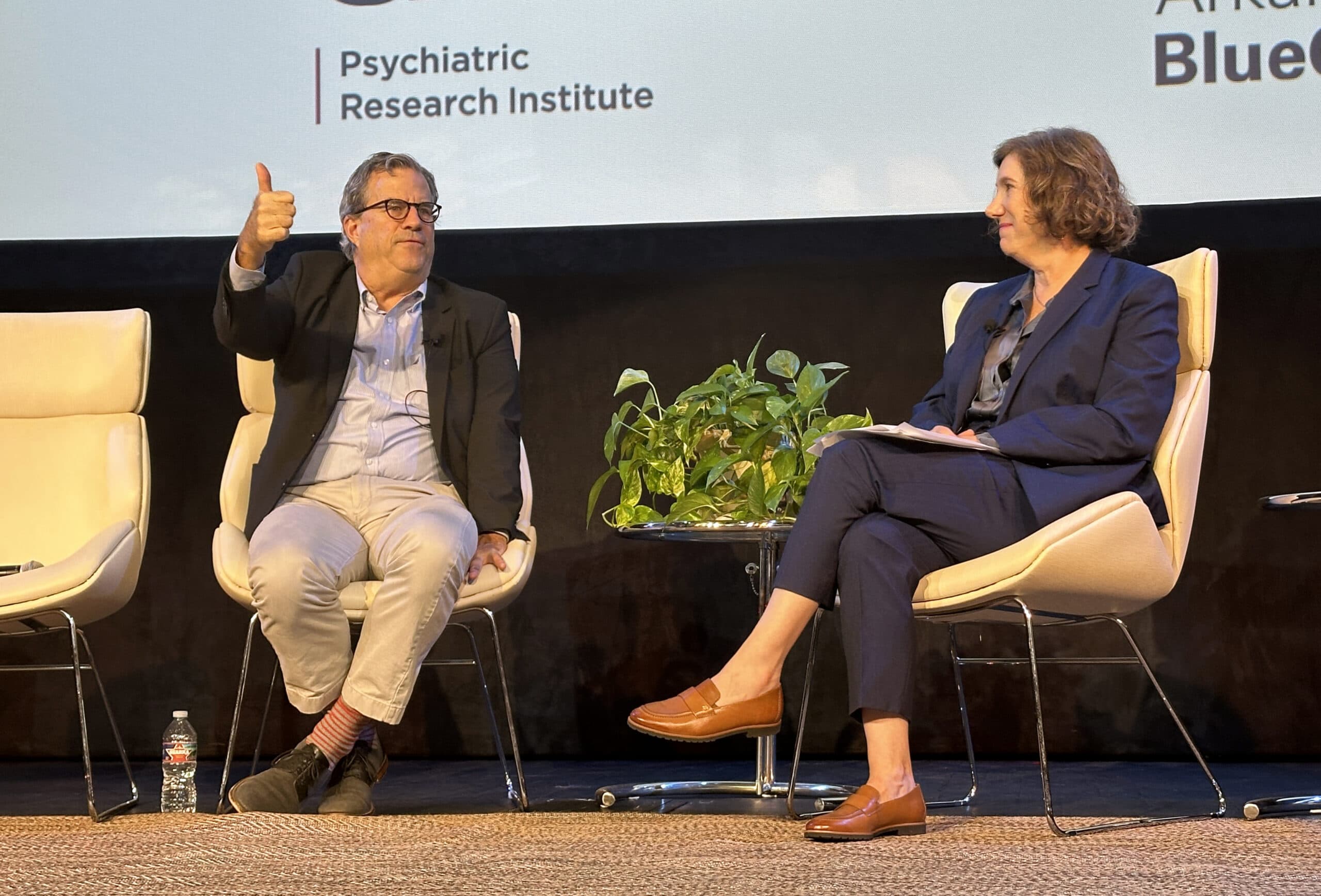‘Drugified’ Depictions Everywhere in America, Says Author Sam Quinones
| The American public is “assaulted” with addictive images every day, according to award-winning author Sam Quinones, so it should come as no surprise that so many people are drawn to the abundance of illicit drugs available throughout the country.
From fast food to gambling, Americans are constantly exposed to what Quinones calls “drugified” portrayals in ads and articles via the internet and television. Speaking Oct. 9 in the Ron Robinson Theater at an event hosted by the University of Arkansas for Medical Sciences (UAMS) Psychiatric Research Institute, Quinones said Americans young and old are subjected to “a hyper-potent supply of substances that are addictive, that are assaulting us every day in this country. And that’s before we get into fentanyl and meth.”
A former reporter with the Los Angeles Times, Quinones has written two highly acclaimed books about the drug trade in and around the United States. His most recent, “The Least of Us: True Tales of America and Hope in the Time of Fentanyl and Meth,” was released in 2021. “Dreamland: The True Tale of America’s Opiate Epidemic,” was released in 2015 and won a National Book Critics Circle award for the Best Nonfiction Book.
“I started out thinking that this was a story about drug companies and Mexican cartels, but I soon discovered that the story was much larger and much more complex,” said Quinones about writing his most recent book, which traces the widespread availability of fentanyl and methamphetamine in the U.S. to Mexican traffickers. “I thought there was nothing more to write about. I mean, what could be worse than heroin?”
The move from marijuana and heroin by Mexican distributors to synthetic drugs like fentanyl and methamphetamine, which are cheaper to produce and easier to distribute, led to disturbing increases in homelessness and overdose deaths, said Quinones.
An unusually large number of overdose deaths in Chicago in 2005-2006 that were attributed to fentanyl spurred interest by drug users and led to even more overdose deaths, said Quinones, who was interviewed by Laura Dunn, M.D., chair of the UAMS Department of Psychiatry and director of the Psychiatric Research Institute.
“That transformation of our brain chemistry, it changes almost everything,” he said, adding that it also made people realize that there is no longer such a thing as recreational use of drugs. “No one can use cocaine without considering the possibility of having fentanyl in it anymore.”
Fentanyl will cause an estimated 100,00 deaths this year in the U.S., Quinones said. “That is a staggering amount of people. It’s hard to find hope in it all.”
A change in the way drugs and drug users are perceived by the public and the way they are treated by law enforcement officials is necessary to end the influence of fentanyl and methamphetamine, Quinones said.
“The life expectancy of someone who uses fentanyl on the streets is maybe three years. We have to get them off the streets, so they don’t die,” he said.
One way to do that is to “rethink jail,” he added.
Providing therapeutic treatment for incarcerated individuals with drug issues would stem the tide of illicit drug usage, he explained, adding that even the most insignificant drug crimes must be taken seriously.
“There’s no such thing as a minor charge (with drugs on the street today). It’s all life and death.”
Quinones said that after two somber books about drug trafficking, it was time to dedicate his skills toward something more uplifting. His next book, scheduled to come out next fall, will revolve around a large wind instrument found in most marching bands.
“I’m working on a book about the tuba; I’ve been fully tuba-conscious for the last year and a half,” he said, explaining that the large, unwieldy instrument is unique in its appeal. “The people that play the tuba, they can find fulfillment through their own creativity, from what they are doing with this massive beast of a horn.”
The half-day event, sponsored by Arkansas Blue Cross and Blue Shield and the Arkansas State Chamber of Commerce, included a panel discussion on addiction and recovery led by Gwen Moritz of Arkansas Business that included Pastor Deborah Bell of Theressa Hoover Memorial United Methodist Church, Srini Gokarakonda, M.D., of UAMS’ Six Bridges Clinic, Katherine Millholland of the Central Arkansas Veterans Healthcare System and Kristin Martin, D.O., of River Valley Medical Wellness.
Michael Cucciare, Ph.D., and Abigail Richison, M.D., of the Department of Psychiatry, closed the presentation by touching on the importance of community-wide support for those dealing with substance use disorders throughout the challenges of recovery.
